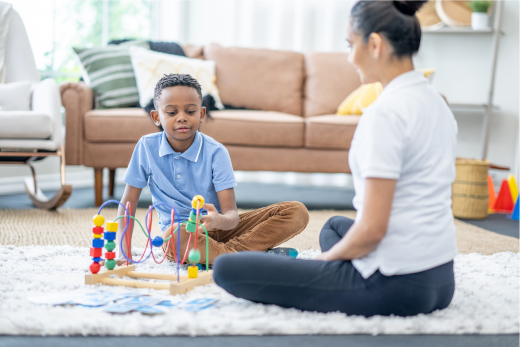Play therapy is a form of therapy that utilizes the therapeutic benefits of play to help children overcome emotional, behavioral, and mental health challenges. It is based on the idea that children naturally communicate and process their emotions through play, and that play can be used as a tool to help children express and work through their feelings in a safe and supportive environment.
During play therapy, a qualified therapist works with the child in a one-on-one or group setting to explore the child's emotions, thoughts, and experiences. The therapist may use a variety of play-based techniques and activities, such as drawing, painting, building with blocks, playing with a play couch. using dolls or figurines, and engaging in pretend play. The therapist provides a range of toys and materials for the child to choose from, allowing the child to explore their emotions and experiences in a way that feels comfortable for them.
One of the key benefits of play therapy is that it allows children to communicate their emotions in a nonverbal way. This can be particularly helpful for children who struggle to express themselves verbally or who may not yet have the language skills to talk about their feelings. Play therapy can also help children who have experienced trauma to process their experiences in a safe and supportive environment. By allowing the child to reenact their experiences in a play setting, they can gain a sense of control over what happened to them and begin to work through their feelings.
Another important aspect of play therapy is that it helps to build a positive and supportive relationship between the child and the therapist. This can be especially important for children who may have difficulty forming relationships with others due to anxiety, depression, or other mental health challenges. The therapist works to establish a trusting and empathetic relationship with the child, providing a safe and supportive space for the child to explore their emotions and experiences. Play therapy is typically conducted on a one-on-one basis, but can also be done in a group setting. Group play therapy can be especially helpful for children who are struggling with social skills or who may benefit from the support of their peers. In group play therapy sessions, children are given the opportunity to interact and play with each other, while the therapist provides guidance and support.
Play therapy is a highly effective form of therapy for children, with research showing that it can lead to significant improvements in emotional, behavioural, and mental health outcomes. It is also a flexible form of therapy that can be adapted to meet the unique needs of each child.
If you are considering play therapy for your child, it is important to find a qualified and experienced therapist who specializes in this form of therapy. Play therapists typically have specialized training in child development, psychology, and play therapy techniques, and should be licensed and registered with a professional organization. Whether your child uses a play couch or other tools, play therapy can provide a safe and supportive environment for your child to express their emotions and work through their challenges.


